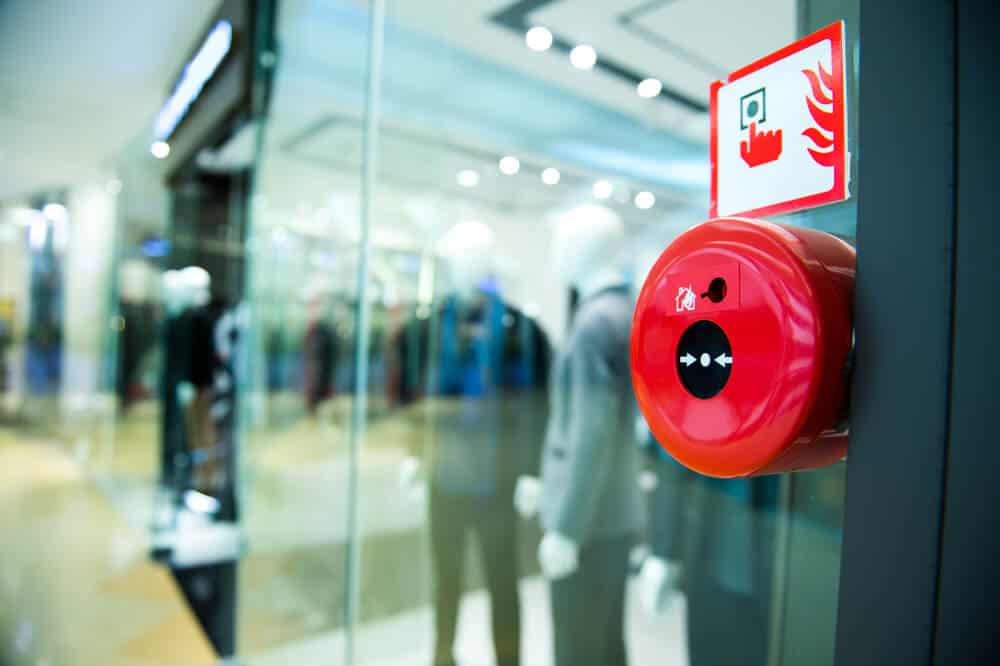Fire Alarm Systems Explained By Elite Fire Security Bristol
Fire Alarm Systems vary in what they do when they detect, heat, smoke or fire and at Elite Fire & Security we understand it can be a bit of a minefield, so we have put together everything you need to know. Elite Fire Security, based in Bristol, repair, maintain or install fire systems throughout the South West UK. For assistance please telephone 0333 577 1230
What is a fire alarm?
A fire alarm is a device that makes a loud noise giving a warning of heat, smoke or fire.
What is a fire alarm system?
A fire alarm system has a number of integral applications working together to offer automatic detection when there is smoke, fire or carbon monoxide and subsequently warn people through visual lights and audio alarms. Alarms can include motorized bells, mountable sounders, horns and light systems.
What is the principle of a fire alarm?
Most fire systems have the same principle; warning people in and around a building if there is heat, smoke or fire detected or if the fire alarm emergency glass unit has been broken, warning them to evacuate. Fire systems can do more than this and it depends on how sophisticated the system is if it does anything else.
Why would you have a fire alarm system?
A combination of heat and smoke detection alerts building occupants of smoke, heat and fire through sirens, bells, and warning lights to give them time to evacuate safely.
Do you have to have a fire system if you are a business?
The UK fire alarm regulations state that all business premises must have ‘an appropriate fire detection system’ to ensure that if there is a fire, it can be easily detected and all occupants are warned and able to evacuate quickly and safely.
Will a fire alarm reduce my business insurance?
It is not always a requirement of a business insurance policy, however, every policy varies. Often having a sprinkler system fitted as part of your business’s fire safety setup can help to reduce the cost of commercial property insurance, however, this is not always the case.
What are the benefits of a fire alarm system?
- Fire alarms save lives
- Fire alarms can save a business
- Fire alarms alert people in a building that there is a risk of smoke, heat or fire
- Reduce property damage and loss
- Reduce damage caused by heat, smoke and fire
- Some Fire systems will alert the emergency services that there is a fire so they are dispatched to the property as soon as the alarm is activated
- Fire Alarm systems will alert designated fire officers in a building so they can ensure a safe and orderly evacuation of everyone inside
Why should you have a fire alarm serviced?
Having a fire alarm serviced regularly ensures that it works when and as it needs to and you don’t have frequent false alarms. Frequent false alarms will result in staff and customers not reacting quickly when the alarm goes off and this can be dangerous if there is smoke, heat or fire detected. If you run a business then having your fire alarm serviced regularly is a necessity to protect both your staff and customers.
Who should have a fire alarm system?
If you are running a business then you should have a fire alarm system to warn staff and customers if there is smoke, heat or fire detected so they are able to evacuate quickly and safely.
Should I have a fire alarm system in my business?
All businesses must have a designated ‘Responsible Person’ who is responsible for making sure that anything set out in a fire risk document is carried out and all necessary action is taken to prevent fires, injury or death if a fire happens. All businesses must complete a fire assessment as part of their Health & Safety requirements and it must be documented when the business employs more than 4 people.
Not all businesses will need a full fire alarm system, however, a domestic fire alarm and carbon monoxide detector can easily be fitted by yourself if it is not a legal requirement to have a full system installed.
The Regulatory Reform (Fire Safety) Order 2005 details everything you need to know as a business in regards to fire safety, it is a lengthy document and a good specialist fire company will explain the main points and considerations for you and your business.
As a Business why would I not need a fire alarm system?
- If your property is a small and single storey
- If your property is small, open plan and smoke, heat and fire is easily detectable
- If a warning of a fire is shouted, it can be heard by anyone in the property from any location
- If you don’t have vulnerable people within your business including; children under the age of 18. the elderly or disabled
- If you don’t undertake higher fire risk activities, such as cooking within your business
- If you don’t have or store any high-risk chemicals and substances that could be prone to catching fire
We would always advise that you get a reputable fire assessment company out to your property who will properly assess and give you recommendations as points shouldn’t be taken that you DO NOT need a fire alarm fitted in your business. If you have already done this and followed their fire safety recommendations then if a fire broke out and it was investigated by the fire services, and yours or other businesses insurance whose property has been damaged then this may be taken into consideration.
Should I have a fire alarm system in my home?
If your home is on one floor then one home smoke and carbon monoxide detector is normally enough to provide you with an early warning of smoke or fire. If your home has more than one floor then one should be fitted on every floor. If you have a large home then you would need more than one smoke and carbon monoxide detector and we would advise that you get a reputable fire alarm company to assess your properties needs and fire risks.
Where should fire and carbon monoxide detectors be fitted in your home?
Fire and carbon monoxide alarms should be located outside of each separate sleeping area and in the immediate vicinity of bedrooms. They should be installed on the wall or ceiling according to the detectors instruction manual.
How often should I test my fire & carbon monoxide detector in my home?
Fire and carbon monoxide detectors should be tested once a month or in accordance with the manufacturer’s instructions. Some are connected to your mains electric and some are battery operated so testing regularly will tell you if there are any problems with either.
Do I need to fit a fire & carbon monoxide detector if I am a landlord?
Yes, by law from 1st October 2015 landlords were and are required to ensure that fire and carbon monoxide detectors are installed in their properties, The regulations state that as a minimum, smoke detectors/alarms should be installed on every floor of the property and a carbon monoxide alarm in any room containing a solid fuel-burning appliance.
What is a commercial fire alarm system?
All commercial fire systems are principally the same in that they detect smoke, heat, fire, or when someone manually breaks the glass on one of the emergency fire alarm manual call points around a building an alarm will sound to alert the fire officers and people in the building that they need to evacuate quickly. Some commercial systems offer remote signalling which alerts the fire services that the alarms have gone off via a central service so that a fire engine or engines can be dispatched quickly.
What types of commercial fire alarm systems are there?
- Conventional
- Analogue Addressable
- Addressable
- Wireless systems
What is a Conventional fire alarm system?
A conventional fire system call points and detectors are built around zones in a building which quickly establishes which area of the building heat, fire or smoke has been detected. A control panel is wired to a minimum of two sounder circuits, often more depending on the number of zones the system has been built around, and these sounder circuits will either have electronic sounders or other audible parts to alert people in the building that they need to evacuate. Each circuit has an end of line part which is used for monitoring purposes.
What is an Analogue Addressable fire alarm system?
They are also known as Intelligent Fire Systems. There are different types of Analogue Systems available and each ones capabilities will vary. Some of the standard Analogue Detectors will only give out alarm signals of what it thinks may be happening and it is up to the Control Panel Unit to decide if there is a fire, fault or fire test.
A true Intelligent Analogue System detector has its own computer which continually evaluates the air and environment around its detectors to tell the Control Panel if there is a fire, fault or the detector needs cleaning. An Analogue System is more complex than a Conventional or Addressable System and has more features available, however, its main purpose is to prevent the occurrence of false alarms.
An Analogue Addressable System can have up to 127 input devices (Smoke Detectors, Call Points, Heat Detectors, Contact Monitors) as well as other interfaces which can be wired into each detection loop. There can be up to 32 Outputs (Loop Sounders, Relay Modules and Sounder Modules) connected. Analogue Systems are available in 2, 4 and 8 loop versions and as a result, can monitor large premises from one Control Panel.
What are Addressable Systems?

Read more: https://elitefiresecurity.co.uk/conventional-or-addressable-fire-alarm-systems/
What is a Wireless fire alarm system?
Wireless fire systems are an alternative to wired fire systems for all alarms. They use secure, licence-free radio communications to interconnect the sensors, smoke detectors and call-points with the Control Panel. A wireless system offers many unique benefits and can be a full analogue addressable system without the need for additional cabling and electric points, however, it does rely on batteries.
What is the difference between a Class A and Class B fire alarm system?
If a wire or a connection in a Class B system is broken then it will stop working effectively. A Class A Wiring System will indicate if there are issues with the wiring, but still alert the occupants of fires if there is a connection or wire broken so is much more sophisticated.
What is the difference between Class A wiring and Class B wiring in a fire alarm system?
A Class A wiring system will back feed communication of a fire on the return loop so most, if not all of its devices can still communicate with each other and alert you of a fire. Compared to a Class B Wiring System where if a wire or connection breaks the devices don’t communicate to the panel beyond the fault meaning you could be without a fire alarm.
What is a Type 4 fire alarm system?
A Type 4 alarm system has smoke detectors everywhere except in areas Smoke or Steam could cause any false signals and in these areas heat detectors are fitted. It has manual call points and the smoke detectors can be connected to the fire brigade.
What type of fire alarm system should I install?
The type of system you should install depends on your premises and its use. You would need a different fire system if people slept anywhere within the property compared to a business that operates with no sleeping occupants. It will depend on how big the property is, entry and exit points, whether it is a single or multi-storey as well, where escape routes are and if there are enough of them, and many other considerations. A professional fire alarm business will understand fire legislation and will be able to guide and advise you of the options available for you. They will assess your property and spend time with you to understand your requirements before making any recommendations and then designing a bespoke system for you.
How much does it cost to install a fire alarm system?
This will depend on the type of system you have installed, your property size and your needs. A good and professional business like Elite Fire & Security will assess your needs, escape routes, and offer you alarm solutions depending on your budget with no obligation.
What is an initiating device fire alarm system?
The initiating devices in a fire system detect all of the possible signs of a fire and smoke which then activate the alarm signals. These can include; call points, pull stations, heat detectors, duct detectors, and smoke detectors and more.
What is the work of a repeater panel in an addressable fire alarm system?
The repeater panel is an addressable touch-screen which is designed to work as either an active repeater which provides a full list of system events and controls, or also as a passive repeater panel which offers partial event information with no controls.
What is an isolator module and why is it used in a fire alarm system?
An isolator module is used in an addressable fire system and it is placed in the circuit between different zones or devices and then wired just like all the other devices. The Fault Isolator Modules are spaced between different groups of sensors in a loop which protects the rest of the loop so that other sections will continue to operate normally if there is a problem.
What are the common reasons for a false alarm on a fire system?
There are a lot of common reasons for false alarms and your fire specialist will be able to advise you of these as well as service and maintain your system to prevent these.
- Smoke or steam setting off an automatic fire detector
- Issues with your fire system including connections, wires, sensors and control panel
- Manual break glass call point being activated accidentally or maliciously. False alarms are rarely raised through faulty call points
- Issues with your alarm system (wiring and connections)
- Poorly maintained or irregularly serviced fire system
Having your system serviced and checked regularly by a professional will keep your fire system in excellent working order and is essential. Your Responsible Person should conduct a fire system check weekly to ensure it is working as it should do, as well as having a fire drill regularly which is documented. Your fire specialist will discuss this with you and guide you to ensure you keep within the fire regulations including checking your escape routes.
- Have you reviewed your fire risk assessment in the last year?
- Have all your employees had their fire safety training in the last 12 months?
- Do you have your system checked and maintained by a professional specialist regularly?
- When was your fire system installed and is it still fit for purpose for your business and property?
Can an intruder alarm and a fire system be fed off the same breaker circuit?
A fire system can be fed off the same breaker if the system uses the same circuit. Usually, they don’t need a dedicated circuit, therefore, it can be fed off the same breaker but your fire specialist will advise you of the alarm solutions available to you.
Is there any way to turn off a sounding commercial fire alarm without gaining access to the control panel?
Most commercial fire systems are not designed to allow the alarm to be silenced or reset without access to the main control panel and this is a safety aspect to ensure the building is thoroughly checked for fire and all occupants have been evacuated before it is silenced.
Who should I consider when I am thinking about a fire alarm system?
If you move into new business premises then you should always complete a full fire assessment to ensure your property is safe for its users, or ask for a reputable fire assessment company to come out and do it for you. They will advise you of any current systems and if they meet the requirements of The Regulatory Reform (Fire Safety) Order 2005 or if any work needs to be undertaken with your fire alarm system.
Why should I consider a fire alarm specialist?
A fire alarm specialist will fully understand The Regulatory Reform (Fire Safety) Order 2005 and will be able to establish if the current fire alarm meets all of the legal requirements of the Regulatory Reform, or if any action needs to be taken to ensure it does. There may be times when you move into a new or existing property that it needs a new fire alarm designed and installed and if this is the case a fire alarm specialist will be able to; advise you of the system you need to meet all of the legal requirements, design and install it, make adjustments to an existing fire alarm system, ensure you have suitable escape routes or service the alarm to ensure it is fully functional, safe and within British Standards certification body guidelines and specifications.
What should I expect from a fire alarm specialist?
- A good fire specialist will visit your premises to learn about your business and conduct a full fire risk assessment
- They will communicate with architects, facilities managers or building contractors before providing you with a written assessment, recommended actions and a free no-obligation quote
- They should offer you different British Standards fire alarm options, explain the benefits and disadvantages of each one, the cost of installation for each one, along with any ongoing maintenance costs
- They should offer you the option of fire alarm detectors with automatic sprinklers as well as fire service alerts and can recommend if this is a requirement
- They will be able to provide you with information on the businesses they have worked with previously and the types of fire systems they have installed
- The installation of your new fire alarm system should be carried out by fully trained fire alarm specialists who will install and test your new fire alarm system
- They should provide you and your team with full training, and an understanding of your new fire alarm system
- They will be able to offer you maintenance and servicing options that will keep your fire alarm system operating safely and effectively. A good fire alarm company will be able to offer you planned maintenance and service contracts to ensure your system is kept in good and safe working order, preventing issues and giving you peace of mind 365 days a year, 24 hours a day
About Elite Fire Security
At Elite Fire Security we understand how fire can devastate property, businesses and lives, and that ensuring you have sufficient fire protection in place at all times is critical to maintaining safety, meeting legal requirements and peace of mind for you as a home or business owner.
Our Fire Systems give early warning of smoke, heat or fire, allowing the safe and speedy evacuation of your premises.
We have a highly experienced team of fire industry experts that are readily available to evaluate the fire protection requirements of your property and will provide the appropriate recommendations in line with The Regulatory Reform (Fire Safety) Order 2005.
Our fire services include the design, installation, maintenance and servicing of all types of fire British Standards safety systems offering you, your family, your staff and customers protection against the devastation of fire, along with peace of mind, 24 hours a day, 365 days a year.
Elite Fire & Security Fire Alarm Services
We offer an on-site assessment of any existing fire systems to evaluate if they meet current fire regulations and recommend any action that is needed
Our fire alarm design and installation is completed by our fully qualified fire engineer experts who install and test your system
As part of health and safety regulations, your building must have had a full fire risk assessment and fire escape plan documented. At Elite Fire & Security we offer everything you need to successfully pass fire regulations
We offer fire alarm maintenance and service contracts to keep your fire alarm system running and operating effectively and safely
Elite Fire Protection is one of the South West UK’s leading fire safety specialists. We supply, install and maintain a wide range of British Standards Fire Systems and security products at premises throughout Bristol and the South West.
We offer a free, no-obligation site assessment and quotation service. We offer professional and cost-effective fire protection and smoke detection that you can trust. Contact us today on 0333 577 1230 and one of our experts will be able to answer any questions you may have or book your free fire site assessment survey.



